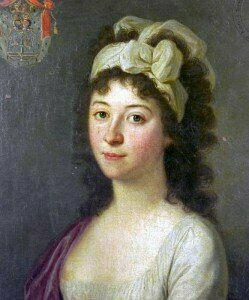Around the time that Beethoven began studying Italian prosody with Antonio Salieri, Salieri’s comic opera Falstaff premiered on January 3, 1799. Falstaff was neither the first nor the last opera based on Shakespeare’s play Merry Wives of Windsor.
In Act 1, Scene 6 of Salieri’s Falstaff, Mistress Ford and Mistress Slender (Mistress Page in the play) discover that the love letters that Falstaff has sent them are identical, and they sing the duettino “La stessa, la stessissima”:
“It’s the same, exactly the same. To the last word! Only the names differ. I am so mad And yet I could laugh! In truth this is so strange!” This is the duet that Beethoven used for a set of ten piano variations, catalogued as WoO 73.
#Beethoven250 Day 116
Variations on “La stessa, la stessissima” from Salieri’s “Falstaff” (WoO 73), 1799
The humor of the original duettino (and Beethoven’s variations) is certainly not lost on Tokyo-born pianist Shio Okui performing in Moscow.
As with his Piano Sonata No. 4 (Day 88), Beethoven dedicated the Falstaff Variations to the teenage Countess Anna Louisa Barbara de Keglevics, known as Babette. Beethoven also dedicated his Piano Concerto No. 1 to her, but by that time she had become Princess Odescalchi.
